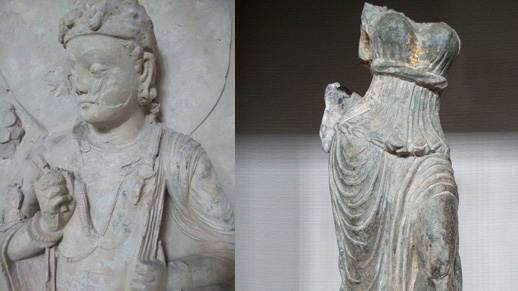Visit to Taxila Museum
- By Li Shen
 0 Comment(s)
0 Comment(s) Print
Print E-mail China.org.cn, July 3, 2014
E-mail China.org.cn, July 3, 2014
Taxila is an ancient town and archeological site in northwestern Pakistan, the ruins of which are about 32 km (20 mi) northwest of the Capital Islamabad. From the ancient Neolithic tumulus of Saraikala to the ramparts of Sirkap (2nd century B.C.) and the city of Sirsukh (1st century A.D.), Taxila illustrates the different stages in the development of a city on the Indus that was alternately influenced by Persia, Greece and Central Asia. It was destroyed by the Huns in the 5th century.
There are 4000 objects displayed in Taxila Museum, including stone, stucco, terracotta, silver, gold, iron and semiprecious stones. Mainly the display consists of objects from the period 600 B.C to 500 A.D. Buddhist, Hindu and Jain religions are well represented through these objects discovered from three ancient cities and more than two dozen buddhist stupas and monasteries and Greek temples.
|
The main door of Taxila Museum [By Li Shen/China.org.cn] |
![The main door of Taxila Museum [Photo by Li Shen/China.org.cn] The main door of Taxila Museum [Photo by Li Shen/China.org.cn]](http://images.china.cn/attachement/jpg/site1007/20140703/001ec949c22b151f5afd2d.jpg)





Go to Forum >>0 Comment(s)